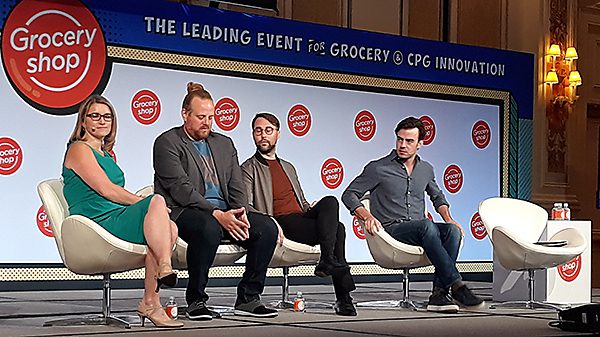LAS VEGAS—There’s plenty of confusion when it comes to cannabis, hemp, and CBD or cannabidiol. Today CBD-infused products, which do not have the intoxicating effects of THC, are coming to the marketplace at a fast and furious pace.
Businesses are hoping to build brands and capture market share in the next 18 months before the U.S. Food and Drug Administration (FDA) releases its regulatory framework. Once the FDA issues its guidance for what is and isn’t legal, the world’s biggest consumer packaged goods or CPGs manufacturers will get into the game.
How does this affect the fresh produce industry? In myriad ways: there are already numerous CBD products including beverages and snacks, and there are restaurants and cafes already adding CBD to their menu selections. Beverages with CBD are being marketed like juices, smoothies, energy drinks, coffee, or wine, for consumers to start their day, choose as an afternoon break, or wind down in the evening.
Capitalizing on the afternoon break theme is Recess, founded by Benjamin Witte. Recess creates and sells CBD sparkling water designed for a fun afternoon break. Describing himself as an anxious millennial, Witte says his drinks can help people relax, get through the day, or sleep better. While he wholeheartedly believes in the power of CBD, he says it should be used in conjunction with a healthier lifestyle, because no amount of CBD products will remove all stressors from life.
Growers that get into the market early, selling fruits and vegetables to CBD food producers, may find it a gold mine. Bethany Gomez, managing director of the Brightfield Group, calls the world of CBDs a “fascinating industry,” full of potential and profit, as it crosses into many CPG categories.
Gomez classifies customers into five groups: glam users (brand-driven millennials), grassheads (daily cannabis users driven by convenience and price), stressed out millennials (using CBD to cope in ‘self-care’), tobacco users (those trying to quit), and aging ailers (users over 50 using CBD for chronic pain relief).
Each group uses CBD for different reasons, though the average consumer uses CBD products twice a week as a lifestyle and/or wellness choice. Last year, the CBD market was worth $627 million to independent retailers; 2019 is expected to hit $5 billion—a growth rate of 700 percent.
The catch? Education on what CBD is and what it can do. Once the FDA begins regulating the segment, most predict it has the potential to change the greater food industry—including fruit and vegetable sales—forever.



